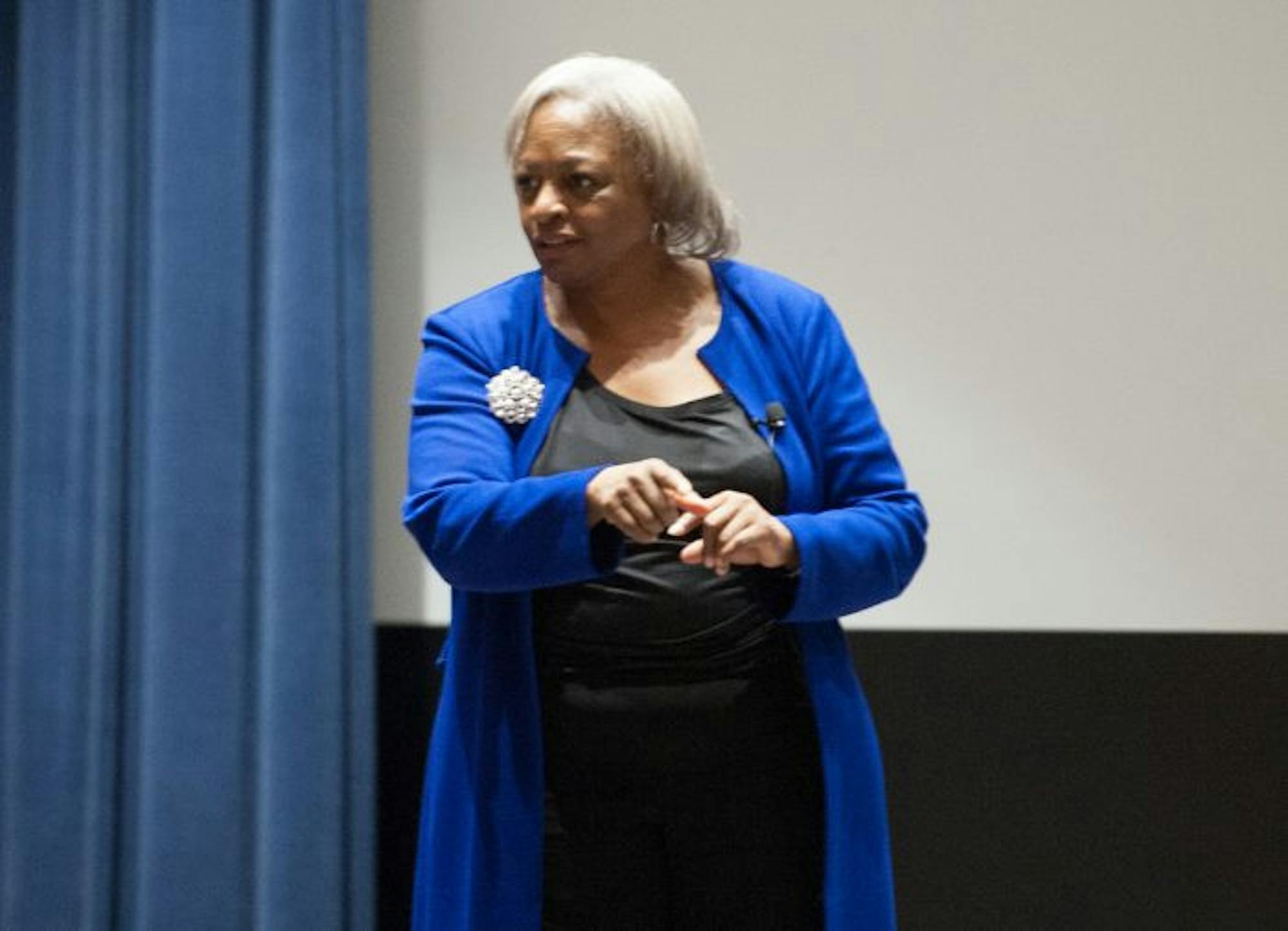Following the backlash against a lecture given by political scientist Charles Murray last spring, the department of Africana Studies initiated the Race and Ideas Lecture Series in partnership with several other academic departments. The second speaker in that series, Dr. Carol Anderson of Emory University spoke on Wednesday night about her most recent book, “White Rage: The Unspoken Truth of Our Nation’s Divide.”
Anderson explained that racism does not always manifest itself in expected ways.
“White rage is not about the way we often think about racism,“ Anderson said. “White rage is not overtly violent. It’s not a [Ku Klux] Klan cross burning. White rage works smoothly, calmly, efficiently, through the legislature, through the courts, through the White House, through Congress, through school boards, through zoning commissions. It works subtly, it works corrosively. And I also began to realize that for white rage to become operational, it wasn’t the presence of black people that did it … Black advancement is the trigger for white rage.”
While the seed of Anderson’s understanding of white rage was planted by the 1999 shooting of Amadou Diallo, an unarmed, 23-year-old black man, by four New York City police officers, it was not until the protests in Ferguson, Missouri, following the death of Michael Brown that her ideas fully formed. Part of it comes from the narrative of black pathology.
“It didn’t matter if it was MSNBC, CNN, or Fox. It didn’t matter. They were all saying the same thing: look at black people burning up where they live ... because when you begin to think about it, underneath all of that is a key element that lives vibrantly in American society,“ Anderson said. ”And that is the narrative of black pathology, that there is something systemically wrong with black people.”
Anderson said this perspective fails to consider the crippling of the African-American population through policy.
“I saw the way that African-Americans’ rights were systematically undermined, but what I also saw, being in this nation, is that we are so focused in on the flames that we miss the kindling. We see the fire and we don’t see what started that fire. And that fire, that kindling, are the policies,” she said.
Anderson went on to describe that “kindling,” from policing strategies and voter ID laws to apathetic school boards and mass incarceration. Many of the policies that disenfranchise the African-American population, Anderson said, are couched in patriotic terms that are difficult to argue with. One such instance is the War on Drugs, which many studies show disproportionately targeted African-Americans, Anderson said.
“What the War on Drugs actually does is that it eviscerates the Civil Rights Act of 1964 … The rights that are protected under the Civil Rights Act do not apply to felons. So if you have mass incarceration of African-Americans, you have just reversed the gains of the Civil Rights Act of 1964. And, as an added bonus, you have permanent felony disenfranchisement, which means that if you have a felony conviction, you cannot vote,” Anderson said.
Anderson pointed to the recent focus on voter identification laws following the 2008 election and the subsequent state policy changes that make it virtually impossible for many African-Americans and other minorities to obtain the appropriate identification. In reality, voter fraud is an incredibly rare occurrence, according to a study conducted by Justin Levitt of Loyola Law School in Los Angeles.
“He looked at voter impersonation fraud because this is what voter ID laws go after ... he looked, and what he found, from the years 2000 to 2014 or 15, out of one billion votes there were 31 cases. Yet we have 33 states that have implemented voter suppression laws using the language of protecting the integrity of the ballot box,” Anderson said.
Anderson then traced the history of white rage, linking every gain for the rights of African-Americans to a massive pushback from white supremacy embedded in governmental institutions. Anderson finished with a reading from her book, calling for honest conversation and a refusal to stand by and allow oppression to continue.
“Not even a full month after Dylann Roof gunned down nine African-Americans at Emmanuel AME, Republican presidential front runner Donald Trump fired up an audience of thousands in July 2015 with a macabre promise: ‘Don’t worry, we’ll take our country back.’ No. It’s time, instead, that we take our country forward, into the future. A better future,” Anderson said.













